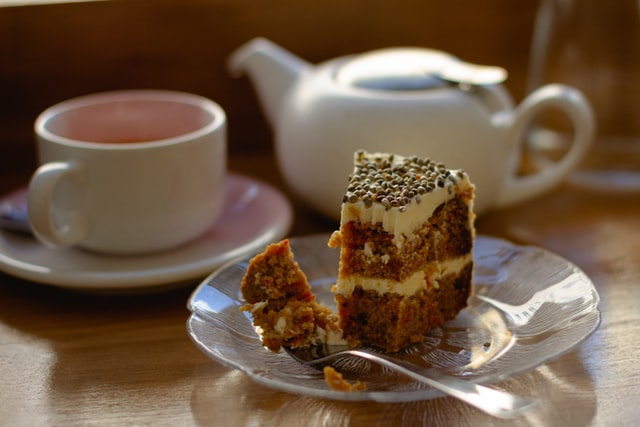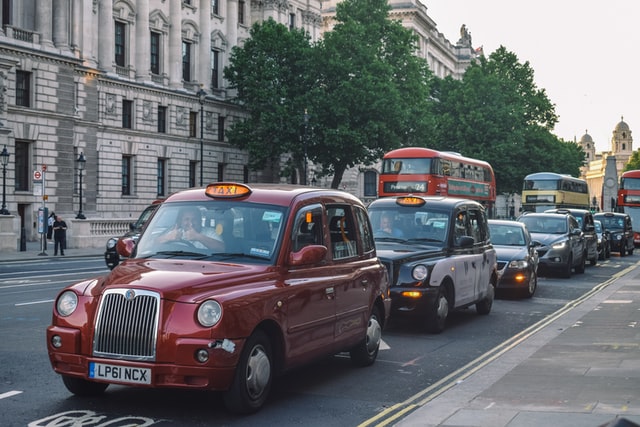Podcast 131 - B1 B2 Terms of Endearment
Explanation of when these terms of endearment are used
There is definitely language that you will find as a visitor to the UK that you won't find in the English language learning textbooks. No, I don't mean swear words - you know, insults! Just the opposite, really! I'm referring to terms of endearment. What does endearment mean? Endearment refers to a word or expression that is used to show affection - to show you like somebody. Mmm, if you're thinking I'm talking about conversation between lovers, boyfriend and girlfriend or husband and wife, married couples, well, no, I'm not! You, too, as a simple visitor or tourist can be the object of terms of endearment during your stay in the UK. Listen on and I'll tell you how! Here we go...
Now, in podcast 106, I talked about formal conversations in shops, for example, between the shop assistant and the customer. I explained how the shop assistant will call you 'sir' if you are male and 'madam' if you are female. However, that is the sort of language you will hear if you go to a bookshop. If you want to hear some typical terms of endearment, do not go to bookshops! They're too formal there!
You need to go to special places to hear terms of endearment. Well, I say special places but you can hear this language anywhere, I suppose: when you're asking the way, when you're getting onto a bus, buying a loaf of bread in a baker's etc. etc. You might be lucky in any of those places or circumstances. But, I'm going to give you some inside information in just a moment, I'm going to tell you a secret - a place where to hear these terms of endearment - guaranteed!
However, first of all, what are these terms of endearment? Well here is a list: dear, love, darling, ducks, duckey (yes, those last two refer to the aquatic bird [imitates a duck]), precious, treasure, heart, dearest heart, sweetheart, cherub, angel and honeybunch.* What many visitors to the UK find difficult to believe is how anybody at all could refer to a complete stranger as 'love' or 'dearest heart'! It happens, and it's very common language indeed. If you want a guarantee that you will be the object of one of these terms then here is the place to go. A cafeteria in a large city such as London, preferably on a railway station. You know, Paddington Station, King's Cross, Victoria Station - any will do. Avoid those pompous Italian coffee shops with their caffe lattes, cappuccinos, vol-au-vent, (that's French) and brownies (that's American) and all that non-British stuff and go to a typical pot-of-tea-and-piece-of-cake cafeteria. What we call a 'no-nonsense cafeteria'. You know, no foreign complications but serving food with names you can find in an English dictionary published in 1956. That's where you need to go!
The following is an example of a typical conversation you may hear. This one at...
A cafeteria on Euston Station in London

I am at the counter of a cafeteria waiting in a queue to be served. Then it's my turn. Listen out for those terms of endearment!
- Me: Hello, I'd like a cup of tea, please.
- Woman behind the counter: How would yer like it, love? Strong or weak?
- Me: Eh, weak, please.
- Woman behind the counter: Milk and sugar with that, darling?
- Me: Eh, milk but I don't take sugar.
- Woman behind the counter: Right you are! Got to watch yer weight, haven't you, sweetheart! [she laughs]
- Me: Yes, yes, of course! [I smile]
- Woman behind the counter: Mind you. A bit a Victoria Sponge would go well with that cuppa. Would you like some?
- Me: Is that the Victoria Sponge cake there! [I point to a huge cake on top of the counter.]
- Woman behind the counter: That's it! Deirdre made it fresh first thing this morning, didn't you Deirdre? [she is talking to her colleague next to her behind the counter]
- Deirdre: Of course I did! Here, I'll give you an extra big slice 'cos you look like such a nice boy! Where's yer tray?
- Me: Oh! I didn't get a tray.
- Deirdre: You'll need a tray. Look. They're just behind you, ducks!
- Me: Thanks. [I get a tray quickly and Deirdre puts a plate on it with a large piece of cake and the first woman puts the cup of tea on it - spilling some tea into the saucer.]
- Woman behind the counter: Will that be all, love?
- Me: Yes. Thank you.
- Woman behind the counter: That'll be six pounds and 30 pence, then, please, dearest heart!
Now the next conversation also took place in London. This is a conversation between Marie (who you have met before in previous podcasts). Marie, from Paris. And this is a conversation between Marie and a London taxi driver. Again, listen for those words and expressions we spoke of earlier.
At a taxi rank outside Paddington Station

- Marie: Excuse me. Taxi!
- Taxi driver: [The taxi driver looks out of the taxi window] Where're you going to, love?
- Marie: The Travel Lodge, please.
- Taxi driver: Well, which Travel Lodge is that, precious? There're more than one!
- Marie: Well. It's Hotel Travel Lodge.
- Taxi driver: All right, angel. I know it's a hotel. Everybody knows it's a hotel. But there are lots of Travel Lodge hotels, aren't there, heart? Which one is it?
- Marie: Ehm. I can look for the reservation in my mobile. Eh. Yes. It says, Travel Lodge, Farringdon Road. Do you know it?
- Taxi driver: Farringdon Road? Of course, I know it! I'm a London cabby, aren't I, sweetheart? Now shall I help you with that case?
- Marie: No. That'll be fine, thank you. I'll just put it next to me in the cab.
- Taxi driver: Please yourself, cherub. You sitting comfortably? Hold tight, then! Off we go!
Well, there you have a couple of example conversations with these terms of endearment. Any rules here about using them? Yes. Most definitely! Don't! Don't use these expressions yourself! Leave it to the natives. This is language just for recognition. In exactly the same way you wouldn't use 'sir' or 'madam' when talking to people, don't use these expressions either. But they're quite fascinating though, aren't they?
Until next time!
Good bye for now!
*List adapted from the book: The How to Be British Collection by Martin Ford and Peter Legon. Lee Gone Publications.
Copyright © 2023 Practising English
All rights reserved